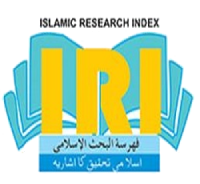Towards a Halal HACCP: An Analytical Study of HACCP in the Light of Shariah Rulings
Keywords:
HACCP, Standards, Analysis, Food Safety, Halal HACCP, PackagingAbstract
Halal is a broadly defined term in Islam. This applies not only to food and beverages but also to medicine, cosmetics, business, tourism and all aspects of life. Allah SWT has preserved all his authority. Based on the Islamic theory regarding halal and haram, this principle has been described in the Holy Quran that all bad things, i.e. impure and undesirable things, are forbidden and all pure, delicious and good things are halal. This principle is explained in the Holy Qur'an with the importance that all people are addressed as such; O people eat that which is legal and clean in the earth. Modern technology has not only created many facilities for humanity today, but it has also opened the door to many problems and difficulties. Multinational companies are on the cutting edge of delivering their products to the world because of their wealth and expertise. Consequently, it is necessary to create standards that have strict requirements concerning halal and haram. The importance of safe and healthy food can be estimated from the World Health Organization report that 1.8 million people die each year from poor, unsanitary food. At present, various food safety standards are in place internationally. One of which is hazard analysis and critical control points. The following objective is discussed in this article: to analyze the HACCP rules in terms of halal certification and standardization. In short, HACCP plays a major role in the economy of a country. Having the Halal logo on the HACCP product will make it preferable.
Downloads
Published
How to Cite
Issue
Section
License

This work is licensed under a Creative Commons Attribution 4.0 International License.
This work is licensed under a Creative Commons Attribution 4.0 International License.





